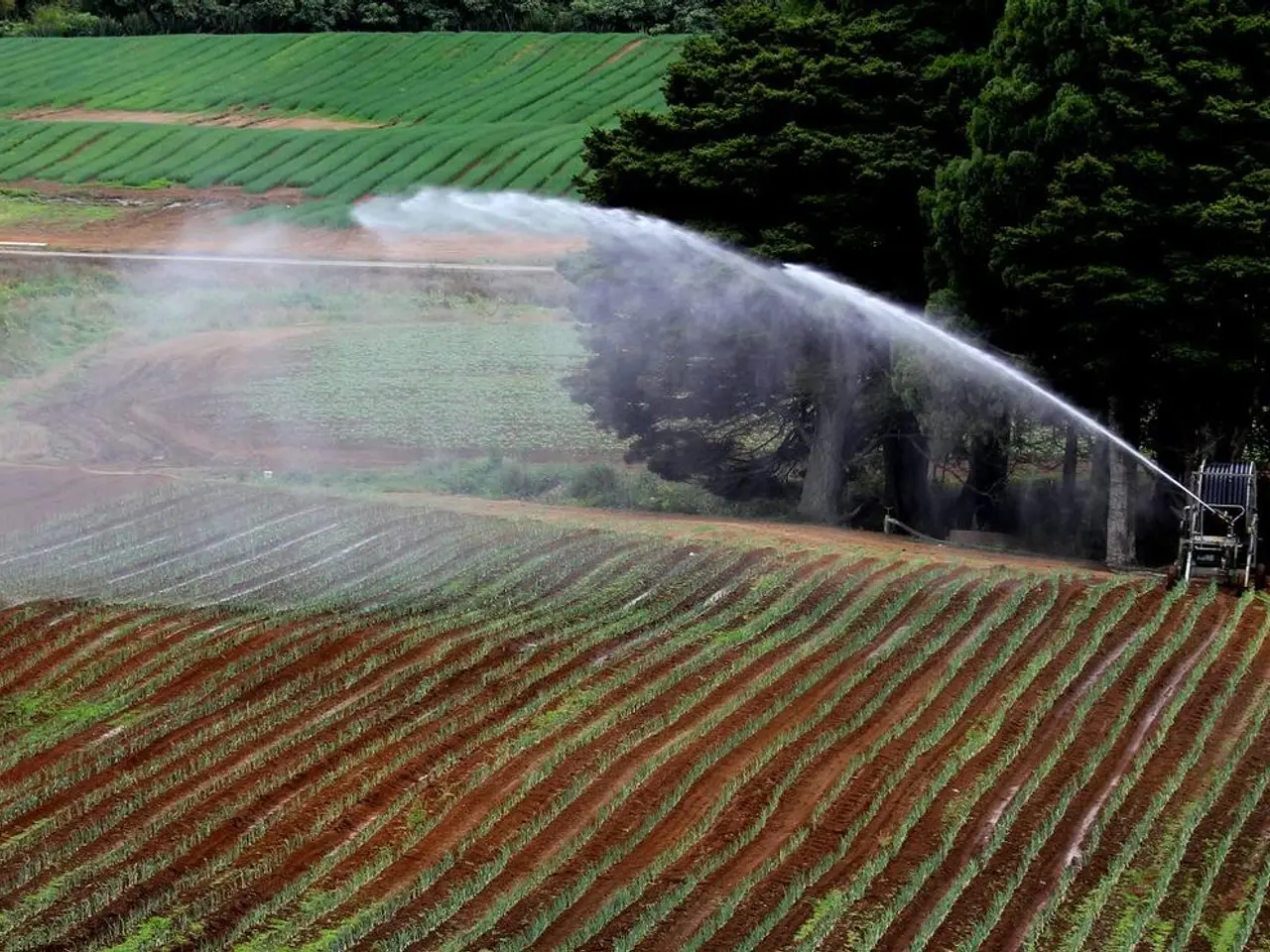Transforming Waste into Power: Biogas Facility in Mauritius Taps into Green Energy
In an ambitious move towards a greener future, the island nation of Mauritius is set to construct its first large-scale biogas plant. This groundbreaking initiative aims to transform organic waste into renewable energy, marking a significant step towards waste management solutions and energy independence.
The project, championed by the Solid Waste Management Division (SWMD) of the Ministry of Environment, Solid Waste Management and Climate Change, is a result of technical assistance from the UN Climate Technology Centre and Network (CTCN), South Africa's Council for Scientific and Industrial Research, and the University of Mauritius.
**Project Details:**
The biogas plant will be designed to process 100 tons of organic waste per day, generating enough biogas to produce approximately 1.5 to 2 megawatt-hours of electricity daily. This will be achieved through the collection of organic waste and its conversion into biogas via anaerobic digestion.
To operationalize the project, expressions of interest (EOIs) have been issued to identify qualified service providers capable of waste collection and biogas production. The government's readiness to implement this project is evident, with a public-private partnership model proposed for the biogas plant. In this model, the government will secure waste inputs, while private operators will handle the plant's design, construction, and operation.
**Feasibility:**
Large-scale biogas plants are technically feasible in Mauritius given the availability of organic waste and growing experience globally in biogas technology. Modern biogas upgrading technologies, such as BIOCH4NGE® technology, can produce high-quality biomethane suitable for injection into gas grids or use as vehicle fuel.
Adhering to international best practices, such as those outlined by the International Energy Agency (IEA) and the World Biogas Association, is crucial to minimize methane leakage and maximize environmental benefits. Implementing sealed tanks, leak detection, and recycling methane during upgrading are key best practices.
**Impact on Waste Management:**
The biogas project will help divert substantial amounts of organic waste from landfills, reducing environmental pollution and methane emissions from uncontrolled waste decomposition. Better organic waste management supports circular economy principles by turning waste into valuable resources, such as renewable energy and nutrient-rich digestate usable as fertilizer.
**Impact on Energy Independence:**
By producing renewable biogas locally, Mauritius can reduce its dependence on imported fossil fuels, enhancing national energy security and stability. Biomethane produced can be used for power generation, heating, or transportation fuel, aiding in the country’s transition to a more sustainable and diversified energy mix.
This aligns with global trends advocating biomethane as part of the premium pathway to net-zero emissions, contributing to climate goals.
**Beyond Infrastructure:**
The biogas project in Mauritius is more than an infrastructure upgrade; it's a significant step towards circularity and scalable climate solutions. The country's only landfill, Mare Chicose, is nearing saturation, making the need for sustainable waste management solutions increasingly urgent.
The project also demonstrates how small nations can lead on big issues by combining local action with international support, community engagement, and smart investment. It could serve as a model for other island nations and regions navigating waste, energy, and sustainable development challenges.
The project has received funding support from the EU, further underscoring its financial viability given enough quality feedstock and the right partnerships. As the project transitions into the procurement phase, with construction expected once the waste processing facilities are up and running, the future of sustainable waste management in Mauritius looks promising.
- The Solid Waste Management Division (SWMD) of the Ministry of Environment, Solid Waste Management and Climate Change, along with international partners, is driving the construction of a biogas plant in Mauritius, a move aimed at converting organic waste into renewable energy as part of the country's effort towards a greener lifestyle.
- With an investment in BIOCH4NGE® technology, the biogas plant aims to produce high-quality biomethane suitable for use as vehicle fuel or injection into gas grids, helping Mauritius transition to a more sustainable energy mix and reduce its dependence on imported fossil fuels.
- The biogas project is not just an infrastructure upgrade; it's a demonstration of how small nations can lead on big issues by combining local action with international support, community engagement, and smart finance. Successful implementation could serve as a model for other island nations and regions seeking sustainable solutions for waste management, energy independence, and environmental science.
- By diverting substantial amounts of organic waste from landfills and producing renewable energy, Mauritius can significantly reduce environmental pollution, methane emissions, and promote the principles of a circular economy and sustainable living, thus contributing to climate change mitigation efforts.
- Adhering to international best practices in biogas technology, such as those outlined by the International Energy Agency (IEA) and the World Biogas Association, will ensure the optimal functioning of the biogas plant, minimizing methane leakages, and maximizing environmental and energy benefits for the nation.




